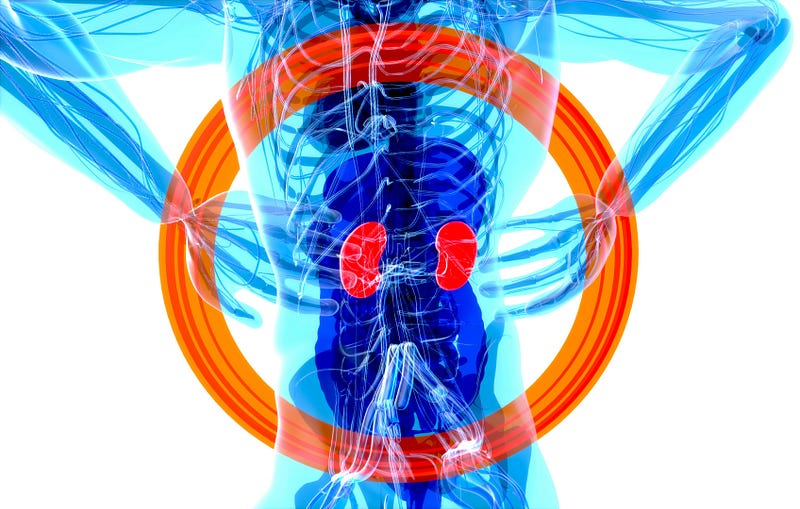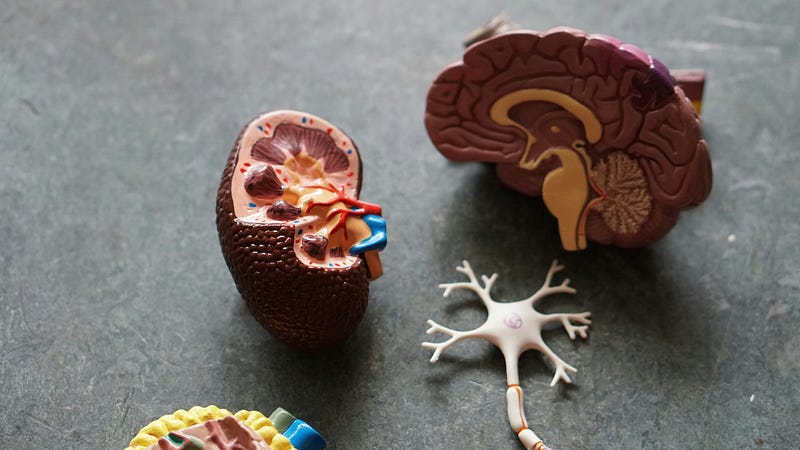
Kidney Health: Understanding the Types of Kidney Diseases and Potential Issues
Oksana RozponczykShare
Did you know that healthy kidneys are crucial for overall well-being? Taking care of them is not just about urinary system health but also about the entire body. That’s why it’s essential to understand the various types of kidney diseases and the potential problems associated with them.
 Photo by julien Tromeur on Unsplash
Photo by julien Tromeur on Unsplash
- Chronic Kidney Disease (CKD): Chronic kidney disease is a condition characterized by a gradual deterioration of kidney function over time. Symptoms may initially be mild or unnoticed, leading to late-stage diagnosis. High blood pressure, swelling, fatigue, and urinary problems are common symptoms to watch out for.
Types of CKD include:
-
Polycystic Kidney Disease (PKD): PKD is an inherited disorder in which numerous cysts develop on the kidneys. These cysts can enlarge, leading to a gradual decline in kidney function. Symptoms may include lower back pain, blood in the urine, high blood pressure, and urinary tract infections.
-
Hypertensive Nephropathy: High blood pressure can damage the kidneys by reducing blood flow to the kidney tissues. This slowly leads to structural damage and decreased function.
- Diabetic Nephropathy (DN): DN is one of the most common causes of chronic kidney disease. High blood sugar levels damage the blood vessels in the kidneys, reducing blood flow and causing kidney tissue damage.
CKD is typically classified into different stages depending on the degree of kidney damage. The classification scale includes five stages, with stage 1 indicating minimal damage and stage 5 indicating advanced kidney failure requiring dialysis or a kidney transplant.
The eGFR, or estimated glomerular filtration rate, is a key indicator of kidney function assessment. The lower the eGFR score, the more advanced the kidney disease. A normal eGFR score is usually above 90 ml/min/1.73 m2, while a score below 15 ml/min/1.73 m2 indicates the need for dialysis or a kidney transplant.
 Photo by Robina Weermeijer on Unsplash
Photo by Robina Weermeijer on Unsplash
- Kidney Stones: Kidney stones, also known as renal calculi, are characterized by the formation of hard deposits within the urinary tract. These stones can form in the kidneys, ureters, or bladder. They are typically a conglomeration of chemical substances such as calcium, uric acid, oxalate, or cystine, which are present in urine.
Symptoms of kidney stones may include:
- Severe, acute pain in the side or back, radiating to the abdomen and groin.
- Hematuria, or blood in the urine, which may be visible to the naked eye or detected in laboratory tests.
- Discomfort during urination or frequent urination.
- Nausea and vomiting, which may be caused by severe pain.
- Fever and chills, especially if the stone causes a urinary tract infection.
Risk factors for kidney stones include:
-
Inadequate hydration: Low fluid intake can lead to the concentration of chemical substances in the urine, increasing the risk of stone formation.
-
High sodium consumption: Excessive sodium intake can increase the excretion of calcium in the urine, thereby increasing the risk of kidney stones.
-
Family history: Individuals with a family history of kidney stones may have an increased risk of developing this condition.
-
Metabolic abnormalities: Metabolic disorders can contribute to the formation of kidney stones.
 Photo by Robina Weermeijer on Unsplash
Photo by Robina Weermeijer on Unsplash
-
Urinary Tract Infections (UTIs) and Kidney Inflammation: Urinary tract infections, such as bladder infections or kidney infections, can lead to serious complications if not properly treated. Symptoms may include pain during urination, frequent urination, lower abdominal pain, and fever.
-
Uremia: Uremia is a condition in which the body accumulates large amounts of waste products called nitrogenous wastes that should be removed by the kidneys. Symptoms may include nausea, vomiting, loss of appetite, fatigue, and swelling. In severe cases, consciousness disturbances may occur.
- Genetically Inherited Kidney Diseases: There are many kidney diseases that are genetically inherited and can have various symptoms and courses.
It’s important to pay attention to the signals sent by our bodies and undergo regular preventive check-ups. If you experience any worrying symptoms, consult a doctor promptly to diagnose and treat any kidney problems quickly. Healthy dietary habits, adequate fluid intake, and regular physical activity can also help prevent kidney diseases and maintain kidney health.
‘’Your health depends on what you eat.’’
AnaskoMed, Your Dietitian
The AnaskoMed Clinic is based on EBM (evidence-based medicine) and reliable sources. Learn more about how we ensure the quality of our content on the website www.anaskomed.clinic
Please note that the information contained in this article is not tailored dietary advice or education. Therefore, if you have health problems or your diet is more demanding, take advantage of individual dietary cooperation or consult a doctor before implementing it.



